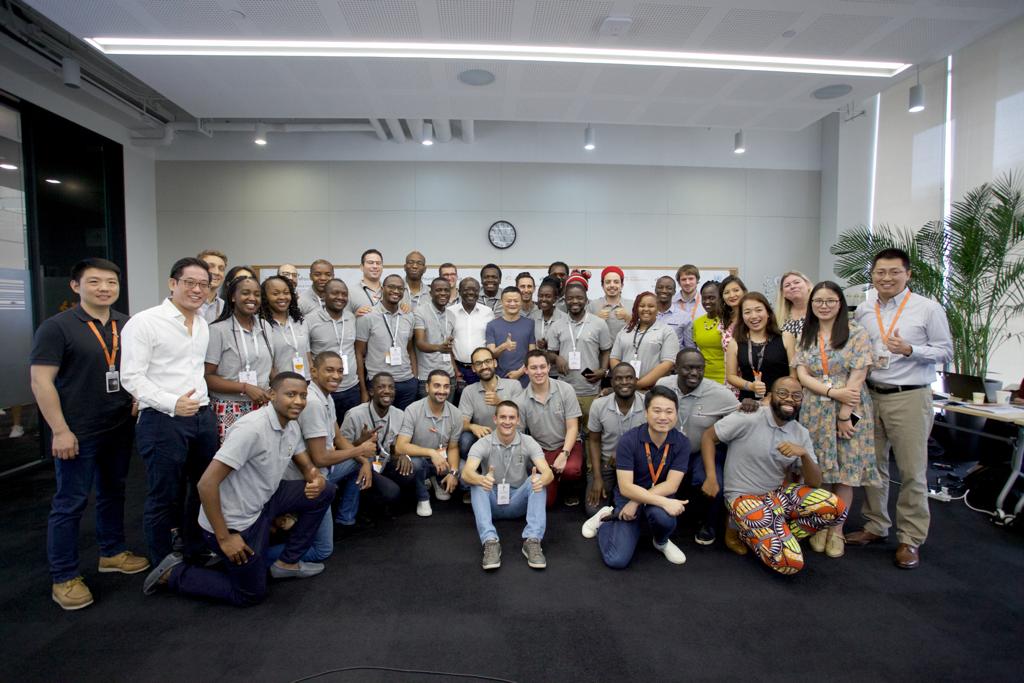The worldwide lockdowns and the economic fallout of the COVID-19 pandemic have forced many small and medium enterprises (SMEs) to reinvent their business models to continue operating. Supply chain disruption radically affected many businesses around the world.
Still, young digital entrepreneurs are stepping up to the challenge and are using their businesses models to mitigate the economic impact of the COVID-19 pandemic and help their communities weather the crisis. This article portraits the efforts and innovations of young entrepreneurs across the globe and highlights how UNCTAD supports them to shape a modern and inclusive digital ecosystem.
A cornerstone of UNCTAD’s support is the eFounders Fellowship Programme, a network of young, digital entrepreneurs in developing countries. In response to the coronavirus crisis, UNCTAD’s eFellows are adapting their businesses to provide critical services at a time when traditional systems are unable to respond.
A good example is Davy Nshuti, an eFellow and founder of a Rwandan technology company DMM.HeHe. His business moved to address disruptions in supply chains caused by self-isolation measures implemented by the Rwandan government. Its online-delivery platform, Shypt, is helping everyday Rwandans continue their shopping online and enabling them to buy from their favourite local shops while still honouring isolation and social distancing regulations – for free.
Uju Uzo-Ojinnaka from Nigeria decided to tackle the issue of medical supply shortages by creating a Pan African digital platform called TOFA Relief for hospitals which can fund and purchase medical goods in the exact quantities they need. “With the COVID-19 pandemic bringing the world to a standstill, everyone feels vulnerable, especially those in Africa”, Ms Uzo-Ojinnaka said.
Ms Uzo-Ojinnaka collaborated with 11 partners to bring this project to life. One of them is a fellow eFounder Adejoru Oluwashola, whose company DE-MIROPASS is an online supermarket that provides online and offline logistical services. To address increasing disruptions in Africa, Ms Uzo-Ojinnaka and partners created a virtual campaign, called “Cover Africa Now”, which aims to match Africans across the continent with logistic business partners that will support TOFA Relief’s efforts to distribute medical items where needed and help hospitals to scale up their crisis response.
“Our campaign #CoverAfricaNow is a rallying call and movement to get citizens of different African countries to virtually come together and protect their motherlands. So far, we have received great support and have partnered up with various eFounders across Africa”, she explained.

When Malaysia introduced movement restrictions to enforce social distancing measures, eFounder Clarence Leong observed a change in people’s purchasing behaviour, which shifted to mainly buying groceries and other essential items. With markets closed, massive queues formed before stores and those who ordered online faced long delivery times.
“Just two days before the announcement was made, we actually had a mini townhall to brief everyone about the basic standard operating procedures”, said Mr Leong, whose company, Easy Parcel, connects SMEs across Malaysia and several other countries. In collaboration with partners, he launched an online shopping market called Pgeon Mart, but with a twist. Businesses that use the digital platform Pgeon Mart can now sell products to customers that are located in the same zones and use Pgeon’s logistic services to deliver fresh goods on time.
The initiative helps people get their groceries delivered within a day and supports the local economy. “This also helps ensure job security for our team so that we all can focus on helping our merchants get through this tough time”, he explained.
Beyond the eFounders Fellowship Programme, UNCTAD also empowers youth through the UNCTAD Youth Network and its Youth Action Hubs initiative. It focuses on working with youth who are implementing the Sustainable Development Goals at grassroots-level to improve and uplift their communities.
Under the guidance of Eugenia Novoa, members of Youth Action Hub of Ecuador teamed up with UN Women: “We are collecting data to develop a real-time map of Ecuador to directly connect customers and women, small producers, across the country”, Ms Novoa said. “Our community’s volunteering activities focus on reactivating the country's economy and facilitating access to local products nationwide while advocating for women empowerment and digital economy”.
On the other side of the globe, members of the Youth Action Hub in Pakistan, coordinated by Muhammad Sarim Raza, launched a social movement campaigning for the Right to Technology, which promotes digital inclusion for a more equitable society. “The first issue we are addressing is how access to technology can help create support systems for mental health and domestic violence incidences”, Mr Raza said.
Other perilous problems such as misinformation about coronavirus pose a serious risk to rural populations with limited access to healthcare service providers. Through the MyPincode initiative, Vansh Madaan and other members of Youth Action Hub in India, in partnership with Social Media Matters and Sarvahitey NGO, counteract the spread of fake news. Mr Madaan explains their initiative: “In times of crises, fake news often becomes the major culprit in its further transmission. Our MyPincode initiative, powered by Sarvahitey and Social Media Matters, is aimed at providing verified hyperlocal information to counter such risk factors. We have established 210 Facebook groups across India with a community of 100,000 members and growing.”
Many of society’s problems were exacerbated by the COVID-19 pandemic.
However, UNCTAD’s young champions are inspiring other youth around the world to become agents of change and take action to make a social and economic difference, leaving no one behind. While the form a post COVID19 world will take is unclear, one thing is certain: young people will leave an imprint in its creation.
By Zarja Vojta, (Youth Coordinator, UNCTAD)
This article is part of the Decent Jobs for Youth Blog Series: Youth Rights & Voices. The Blog Series highlights the impact of the COVID-19 pandemic on young women and men in the world of work and discusses action-oriented policy responses and solutions. If you would like to comment or contribute, please contact decentjobsforyouth@ilo.org.
Article
Global
Global